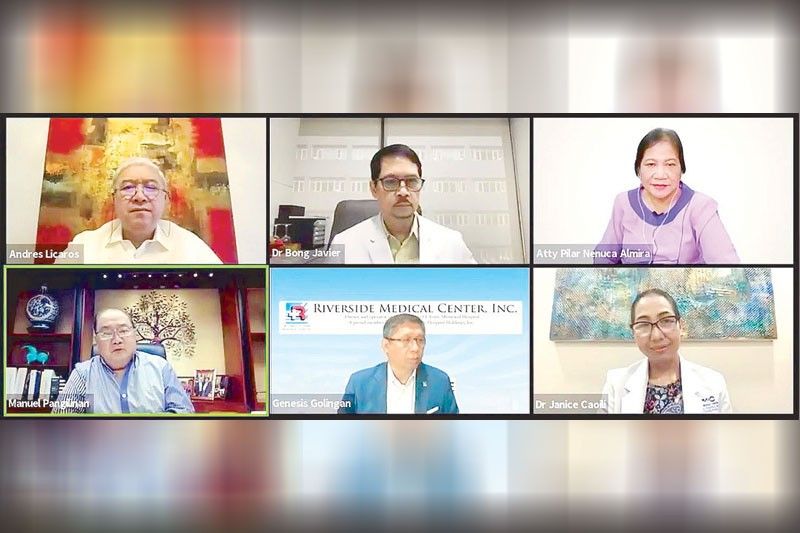Our medical frontliners

Much has already been said and written about our medical frontliners, our heroes in the foxholes and trenches, our first and last line of defense against COVID-19.
The Filipino medical frontliner has been hailed and honored as one of the best in the world.
But human as we all are, it also reaches a point where our medical frontliners, in spite of wanting to give and to serve much more, could only do so much.
They need the support of non-medical frontliners, of the private sector, of us all.

Manuel V. Pangilinan, chairman of Metro Pacific Hospitals Holdings Inc. (MPHHI), mentioned two concerns besetting the medical frontlines in a recent public and private consultative meeting: these were hospital capacity for COVID-19 patients and the need for more medical personnel.
The public and private consultative meeting was organized by Presidential Adviser on Entrepreneurship Joey Concepcion to discuss how the private sector can help avert moving back to enhanced community quarantine (ECQ) amidst the rising level of infection through localized lockdowns and how to keep the economy running in the “new normal.”
Metro Pacific Hospitals Holdings Inc. is the largest private hospital operator in the country with a nationwide portfolio of 16 hospitals, two allied health colleges, a growing network of primary care clinics and cancer care centers, and a central clinical laboratory.

MPHHI has Augie Palisoc as its president and CEO, who has been flying this plane to greater heights and navigating this ship through treacherous waters and the current rough sea that is this pandemic. If you can pardon the references to pilots and captains, but, really, this guy has been at the helm ever since.
On the matter of the full bed capacity, MVP said that the hospitals were already filled up as to allocation to COVID-19 patients and the worry here is that it might compromise the non-COVID-19 ones.
At the start of the pandemic, Our Lady of Lourdes Hospital in Sta. Mesa, Manila, was designated as the primary COVID-19 facility of the group.
This did not prevent, however, the other Metro Pacific hospitals from accepting COVID-19 patients, especially since these cases were on the rise.

There is also the challenge in hiring more medical and health personnel who, in spite of the offer of attractive packages and benefits, oftentimes think twice or look elsewhere instead of taking on work in hospitals and healthcare centers dealing with COVID-19.
Which is why it is laudable that our medical and health personnel who take on the sacrifice of working the COVID-19 frontlines, have responded to this call of duty far beyond their own welfare and interests.
They deserve nothing less than our admiration, adulation, and, more importantly, assistance and support.

Recently, MVP and I met with Health Secretary Francisco Duque III and Health Undersecretary Leopoldo Vega, the designated “treatment czar,” to discuss how MPHHI could help with the government effort against COVID-19.
In that meeting, MVP agreed to Secretary Duque’s request to increase bed allocation for COVID-19 patients in Metro Pacific Hospitals from 20 percent to 30 percent.
MVP also agreed to help with the expansion of the East Avenue Medical Center in Quezon City, which is currently at 250 beds. The commitment would be in the form of additional hospital beds, ICU beds and mechanical ventilators, among others.

The intent in supporting medical frontliners is to also boost the resources they are working with — the very hospitals that are the theaters in the war against COVID-19.
As expressed in a free webinar titled “Is Your Hospital Safe: Inpatient and Outpatient Safety in the New Normal” and hosted by MPHHI, MVP said that the hospital group has reached out to the Inter-Agency Task Force on Emerging Infectious Diseases to suggest to them how the group — not just the hospitals group, but the whole MVP group of companies — can help in the process of mitigating what is perceived to be a second wave of the pandemic.
Healing as one means unifying the battlefront with government, the private sector, and the medical frontliners locked arm in arm, supporting each other.
- Latest
























